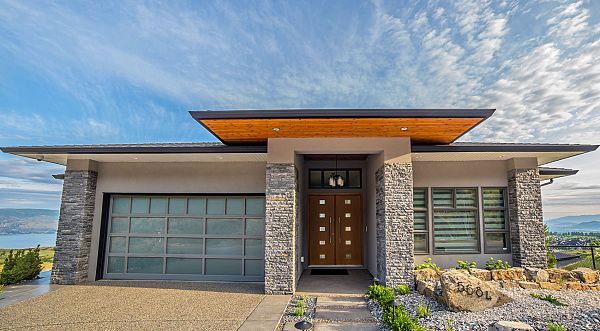9 Tips For Hiring a Qualified Building Contractor
Finding a quality building contractor that is the right fit for you and your family can be challenging, to say the least. Follow these 10 tips for finding a building contractor, and you will be certain to find the right builder for your needs.
Tip #1 Where do I look for qualified building contractor?
Friends and family are the first place that you should turn to when you are looking to hire a qualified building contractor. Ask around and see who they have built with in the past and whether or not they had a good experience with their contractor. Another great source of information and recommendations may be your local City Building Department. Someone in the office may be able to recommend a few qualified contractors for you. Lastly, be sure to check with your local Home Builders Association to see which contractors are most active within the local building community. If a contractor is active within the builders community, it’s a good sign that they are passionate about what they do.
Tip #2 Have a written list of questions
Put together a list of questions to ask each contractor. Your list should include questions about contracts, quoting and billing procedures, insurance, budgets, the contractor's standard level of structural material used in his or her builds, the level of interior and exterior finishes he or she uses, completion schedule for your project, what type of safety practices does the contractor employ, construction time line - when they start will they stick with your project until it is complete, what type of workforce does the contractor have, how accessible is the contractor, can you contact him or her day or evening? Answers to these questions will go a long way in helping you determine if this contractor is right for you
Tip #3 Interview at least three building contractors
Conduct short phone interviews with your chosen builders to determine whether or not it is worth meeting them in person. Ask them the following questions:
Do you often work on projects of this scale?
Can you provide me with references from your previous clients?
Are you willing or able to show me examples of your previous work and a current project?
If you are satisfied with their responses, arrange an in-person interview where you can determine whether the contractor is the right fit for you. Be sure to pay attention to communication. Faults in communication are where the majority of problems and stress occur, so make sure you are on the same page.
Tip #4 Ask for Proof of Insurance
Be sure that your candidates are licensed and insured. This is an absolute must!
When interviewing with contractors, it is important that you inquire about the type of business insurance that each contractor carries. Many contractors will expect that you will be asking about their business insurance and will have the information available for you upon request. Typically. insurance that is required to operate a building company includes WCB (Workers Compensation Insurance), Course of Construction Insurance, and Liability Insurance. Ensure that each contractor carries at least the minimum amount of insurance that is required under the governing laws for new home construction in your area.
Note: It is always a good sign if a building contractor carries more insurance than required. If a contractor asks you or tells you that you need to carry your own insurance, you may want to move on to another contractor. No insurance usually means bad business practices.
Tip #5 Prepare a great bid package
The more information you can provide a builder to quote on, the more accurate to build quote will be. Your bid package should include the following; a complete set of plans that includes a plot plan with home location, floor plans with accurate dimensions, elevations of all sides of the home, cross sections showing structural supports and stair layouts and a roof plan. Schedules should include all of your windows and doors with dimensions, exterior siding, trim and roofing shingles you would like priced.
If you have not completed an interior finish schedule (i.e. kitchen cabinets and vanities, plumbing and electrical finishes and flooring), you should ask the builder to provide you with an allowance for those finishes. For each allowance the builder presents you with, ask the builder to provide you with examples of those finishes or provide you with the location of a supply company that carries the type of material used to create the allowance.
Tip #6 Read the fine print
Ask the contractor for a copy of the contract that he or she would present you with if you decide to build with them. Read the contract thoroughly and make sure that you understand the details of the entire contract. Items that should form part of the contract are your plans and plan specifications, certificates of insurance provided by the contractor, budget, schedules and addendums if any. Before signing a contract, you should seek legal advice with someone that fully understands building contracts if you not sure what you are getting yourself into.
Tip #7 Know where the money is going
You will be asking each Building Contractor to provide you with a cost estimate. You now know that the accuracy of the cost estimate will be determined by the amount of information that you initially provide each contractor to quote. Ask each bidding contractor to provide you with a cost estimate that includes the breakdown for the cost for each line item that represent key aspects of the work i.e. foundation, framing, roofing, siding, plumbing, electrical, etc.
Tip #8 Prepare a payment schedule
Payment schedules should be fair to both parties involved, but the owner should always have the upper hand when it comes to handing out money to a builder. Make sure you don’t give a builder too much up front. The amount of money that you initially give a contractor should represent no more than 10% of the cost of the contractor’s scope of work.
Tip #9 Go with your gut
Once you have received your contractor estimates, it is time to review them and make a decision. If low cost is your main deciding factor, then your final decision on which contractor to choose should be relatively simple. But before you make your final decision, consider the following:
Ask yourself, how did each contractor that quoted my construction project make me feel? Did I feel that they were trustworthy? Did I feel that their office, equipment and jobsites look clean and organized? Did I feel that each contractor answered all of my questions correctly? Was the contractor helpful in making suggestions regarding my floor plans and my family’s needs? Did I feel that the contractor would be looking out for my best interest when it comes to putting together detailed cost estimates from trades and suppliers?
Sometimes the lowest price isn’t always the best way to decide on which builder to choose. You should always consider your gut feeling along with the facts when making your final decision on which contractor is right for you.






